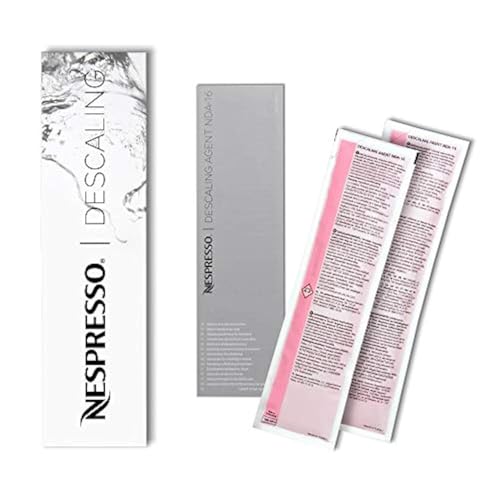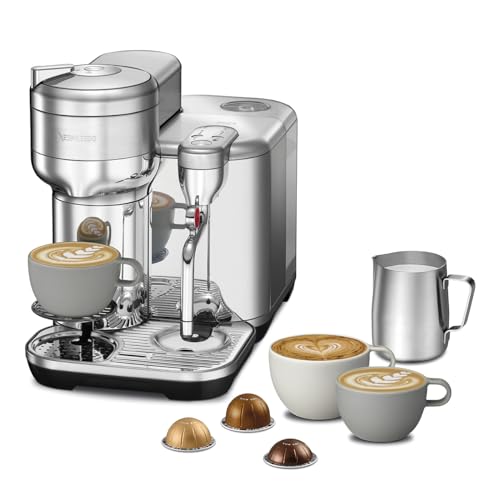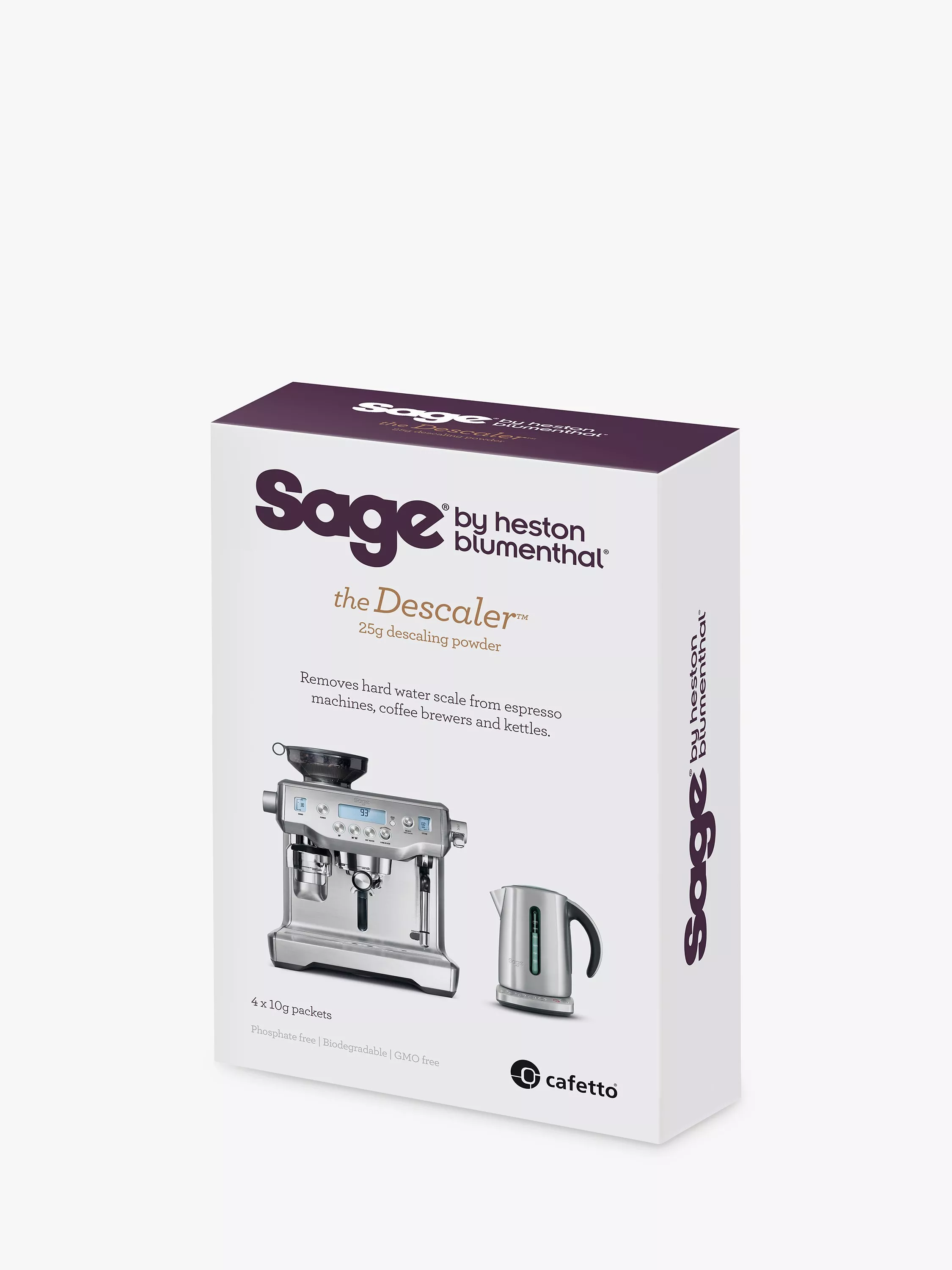How often should I descale my Nespresso? Experts say this is the maximum number of pods you should get through before tackling this task
It turns out 300 is the magic number


For anyone that lives in an area of hard water, you’ll already know the importance of giving your kitchen appliances a descaling - but are you giving your Nespresso machine the same treatment?
Ranked as one of Ideal Home’s best coffee machines, a Nespresso machine is a little kitchen luxury - which is all the more reason why it deserves a little extra tender love and care.
You don’t have to descale your Nespresso machine as often as your kettle - which is every month - instead, it is recommended that you descale a Nespresso machine once every three months.
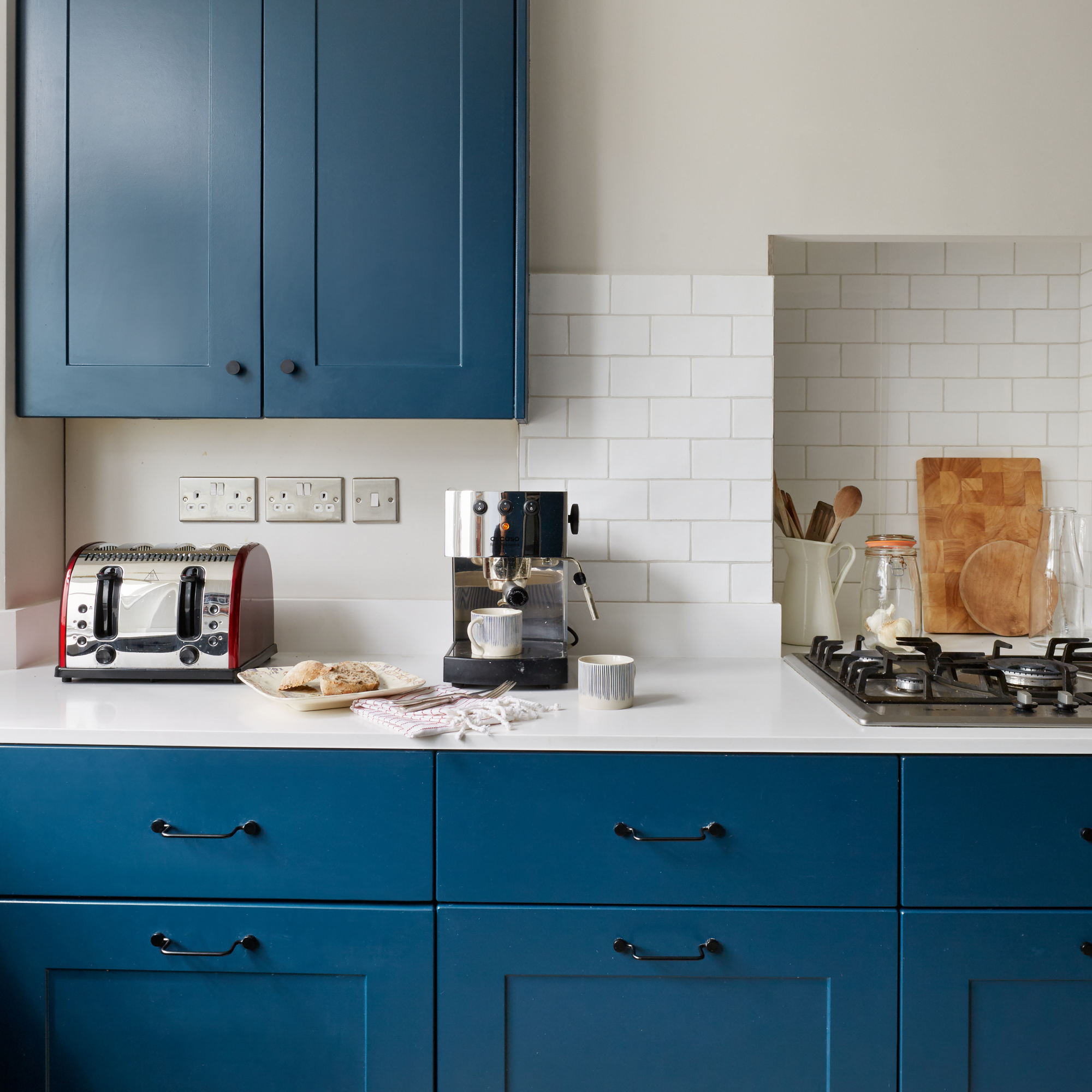
‘Ideally, look to descale your Nespresso machine once every three months or after using 300 capsules, whichever comes first. This gives you the best chance to look after your appliance and ensure you’re looking after its hygiene and longevity,’ says Isabella Forgione, coffee machine expert at AO.com.
Your Nespresso machine may even let you know when it needs a descaling.
‘A convenient descale indicator light is included with the majority of Nespresso machines,’ says Forrest Webber, founder of Bear Brothers Cleaning.
‘As it begins to flicker, your machine is telling you, ‘Hey, buddy, I need a cleanse!’ Ignoring it would be like ignoring your car's check engine light; you could do it, but it would only lead to disappointment.
‘Therefore, when your machine cries out for some descaling love, don't ignore it.’
But why do we need to descale it in the first place?
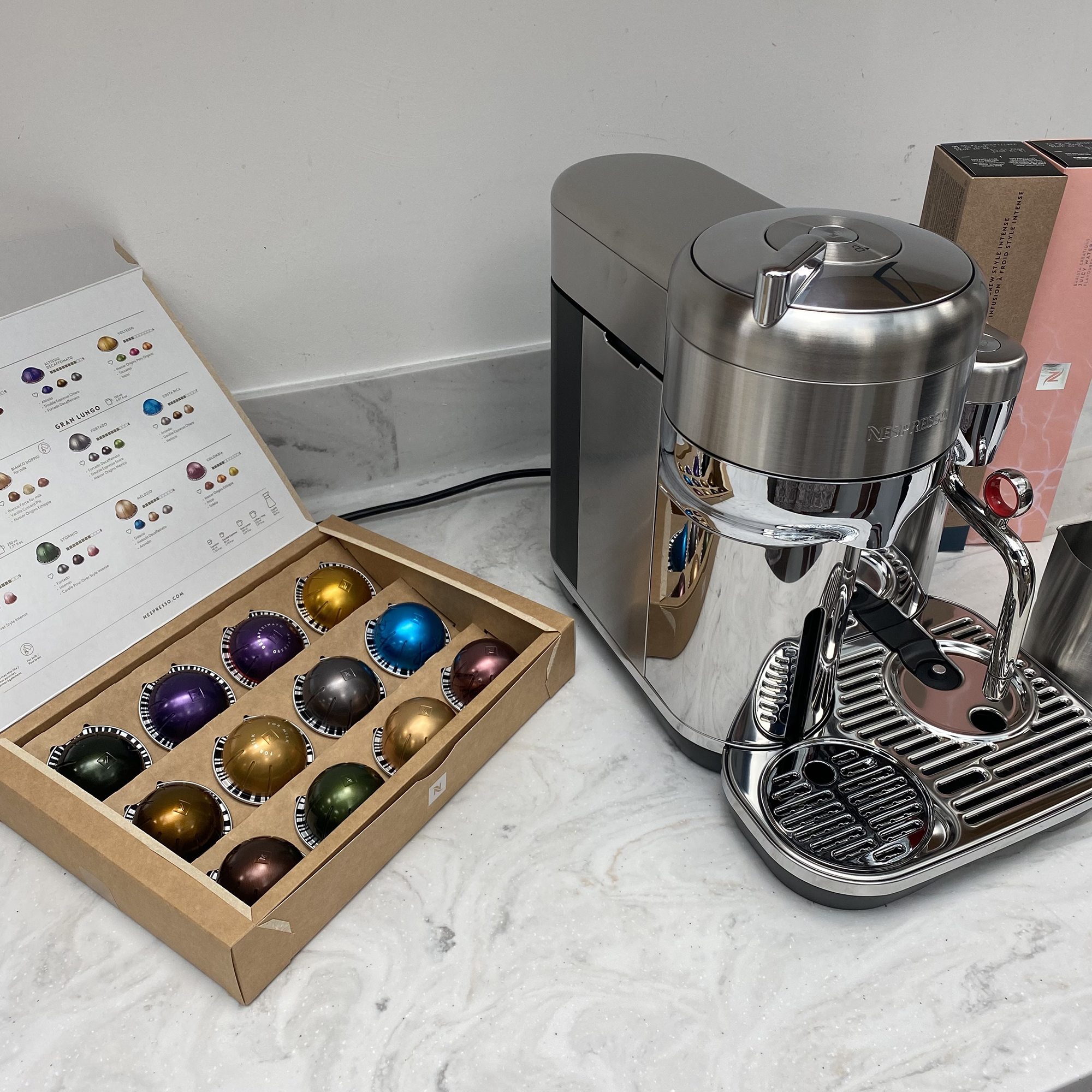
Why do I need to descale it?
‘Picture this - your Nespresso machine, working tirelessly every day to brew your liquid motivation while accumulating unwanted baggage,’ says Forrest.
‘And by baggage, I mean limescale and mineral deposits—gross. Over time, these deposits can mess with your machine's flow and temperature, making your coffee taste less ‘barista-level amazing’ and more ‘lukewarm disappointment’.
‘Enter descaling, the spa day your Nespresso didn't know it needed.’
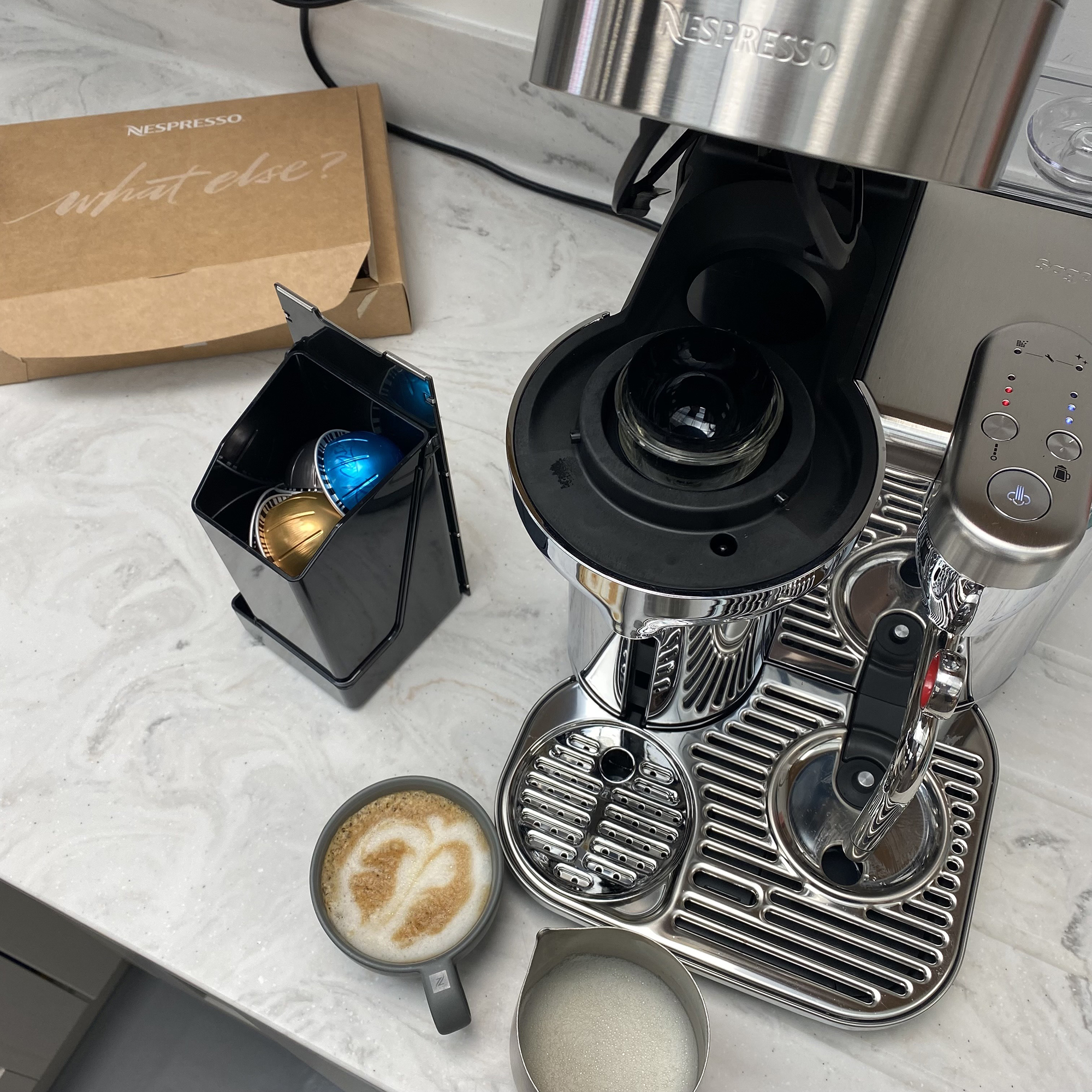
How to descale your Nespresso machine?
Nespresso has a handy guide on descaling their machines, but Forrest has provided a simple explanation on how to descale your Nespresso machine.
‘Grab a Nespresso descaling kit or a universal descaling solution,’ he says.
‘Empty out any used capsules, and dump out that drip tray—it's not doing anyone any favors being full. Make sure the water reservoir is empty, too. Imagine this as clearing the stage for the grand descaling performance.
‘Pour the descaling solution into the reservoir, then add clean water (usually about 500 ml, but check your descaling solution for details)
‘Depending on your model, you must put your Nespresso in descaling mode. If you're not sure how to do this, your manual is your best friend (or just Google it, we've all been there).
‘Place a large container under the spout—trust me, you'll want something big enough to catch all that solution. Let the descaling cycle run.
‘You'll see the descaling solution flowing out, along with all the gunk that's been clogging up your precious caffeine machine. It's oddly satisfying, like your Nespresso is shedding its old scales (limescales, that is).
‘Once the solution is done working its magic, refill the water reservoir with fresh, clean water and let it run through the machine again. This rinse cycle is crucial unless you're in the mood for a chemical-flavoured espresso.’
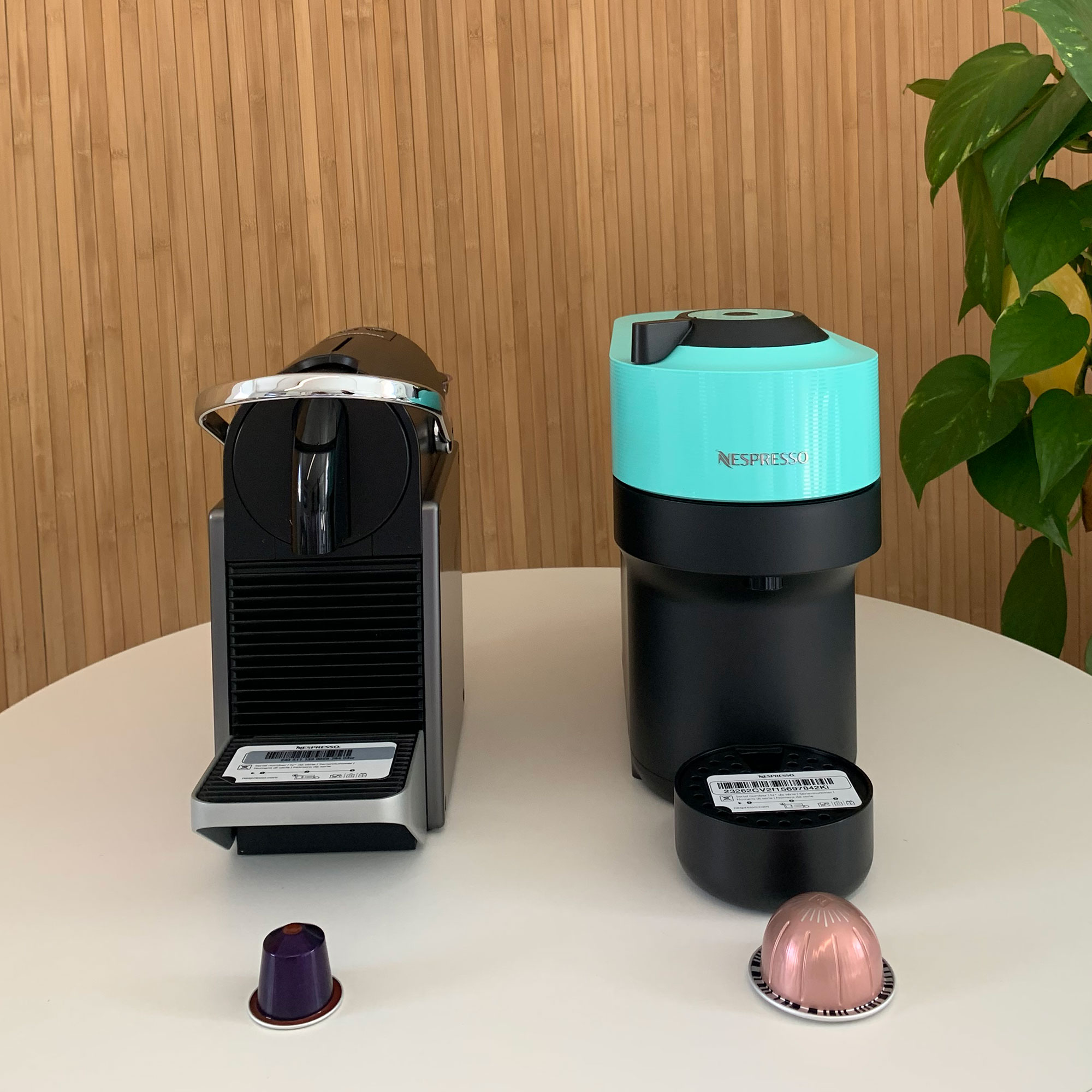
FAQ's
How can I tell my Nespresso machine needs descaling?
If you feel like your Nespresso machine is due a descaling before it’s three months is up - don’t worry, your machine will tell you when it needs to be descaled. Look out for the descaling light to flash green and red - this means you only have several coffees before a mandatory descaling is due.
More classic signs to look out for is if your coffee develops a bitter or dishwater-like taste, your coffee doesn’t come out hot, you can actually see limescale or your machine starts making an abnormal noise.
Get the Ideal Home Newsletter
Sign up to our newsletter for style and decor inspiration, house makeovers, project advice and more.

Kezia Reynolds joined the Ideal Home team as News Writer in September 2024. After graduating from City, University of London in 2022 with a bachelor’s degree in journalism, Kezia kicked off her career spending two years working on women’s weekly magazines. She is always on the lookout for the latest home news, finding you the best deals and trends - so you don’t miss a thing!
-
 Will a conservatory add value to your home and how can you maximise it?
Will a conservatory add value to your home and how can you maximise it?This is what the pros say
By Amy Reeves
-
 I’ve been looking for a new signature scent for my home and The White Company's new fragrance is the exact summer holiday smell I needed
I’ve been looking for a new signature scent for my home and The White Company's new fragrance is the exact summer holiday smell I neededSantorini smells fresh, summery and sophisticated
By Kezia Reynolds
-
 How to remove algae from garden walls in five steps – and the cleaning product experts rave about for tackling it fast
How to remove algae from garden walls in five steps – and the cleaning product experts rave about for tackling it fastExperts share their top tips for getting garden walls algae-free
By Katie Sims
-
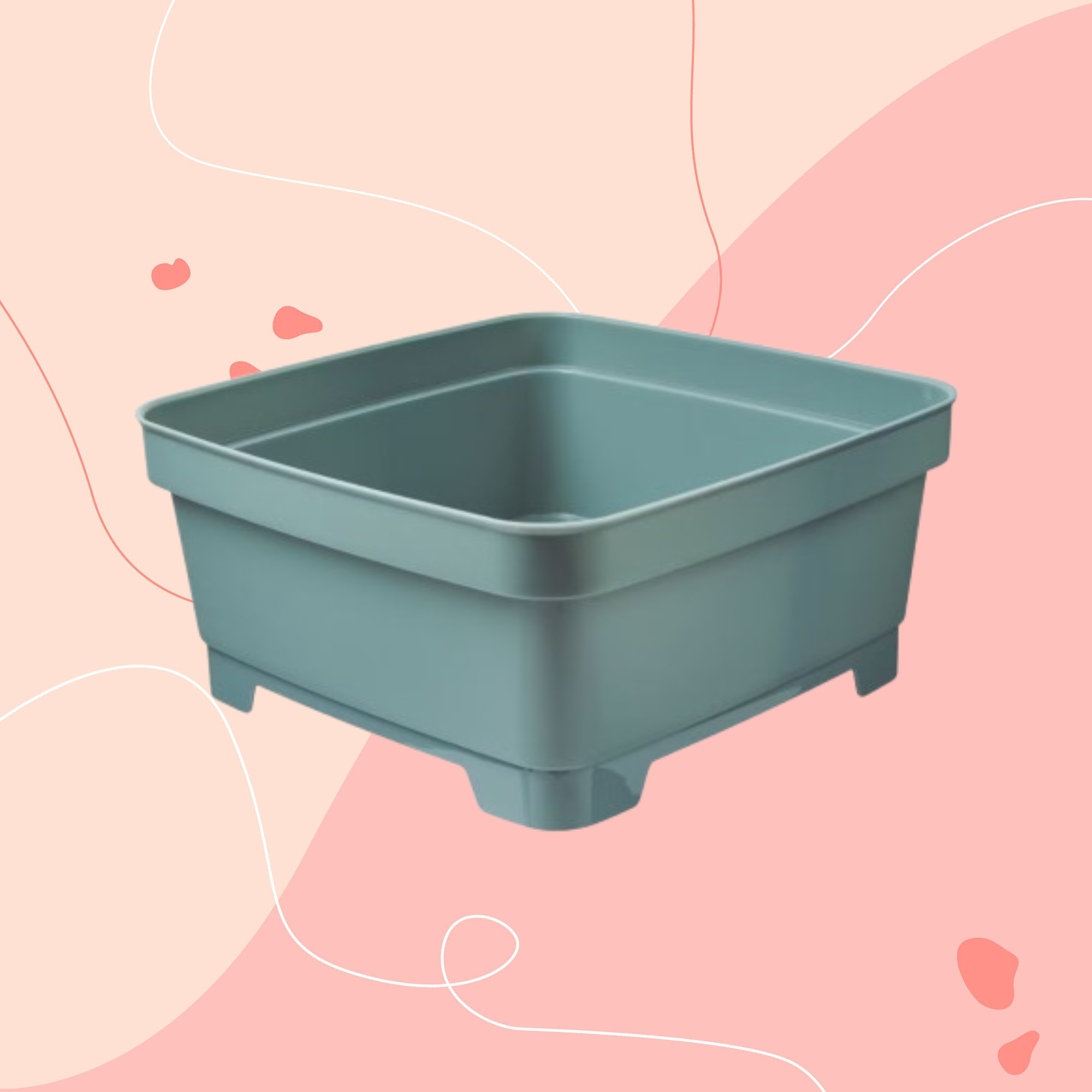 Aldi is releasing a budget alternative to the cult Joseph Joseph washing up bowl – it’s just £4.99
Aldi is releasing a budget alternative to the cult Joseph Joseph washing up bowl – it’s just £4.99The Joseph Joseph washing up bowl is an Ideal Home favourite - now we can't wait to try Aldi's alternative
By Kezia Reynolds
-
 I just bought my first home, and this £10 buy was the very first thing I bought for it to make it feel warmer and secure
I just bought my first home, and this £10 buy was the very first thing I bought for it to make it feel warmer and secureIf I did it all again, this would still be my very first buy
By Rebecca Knight
-
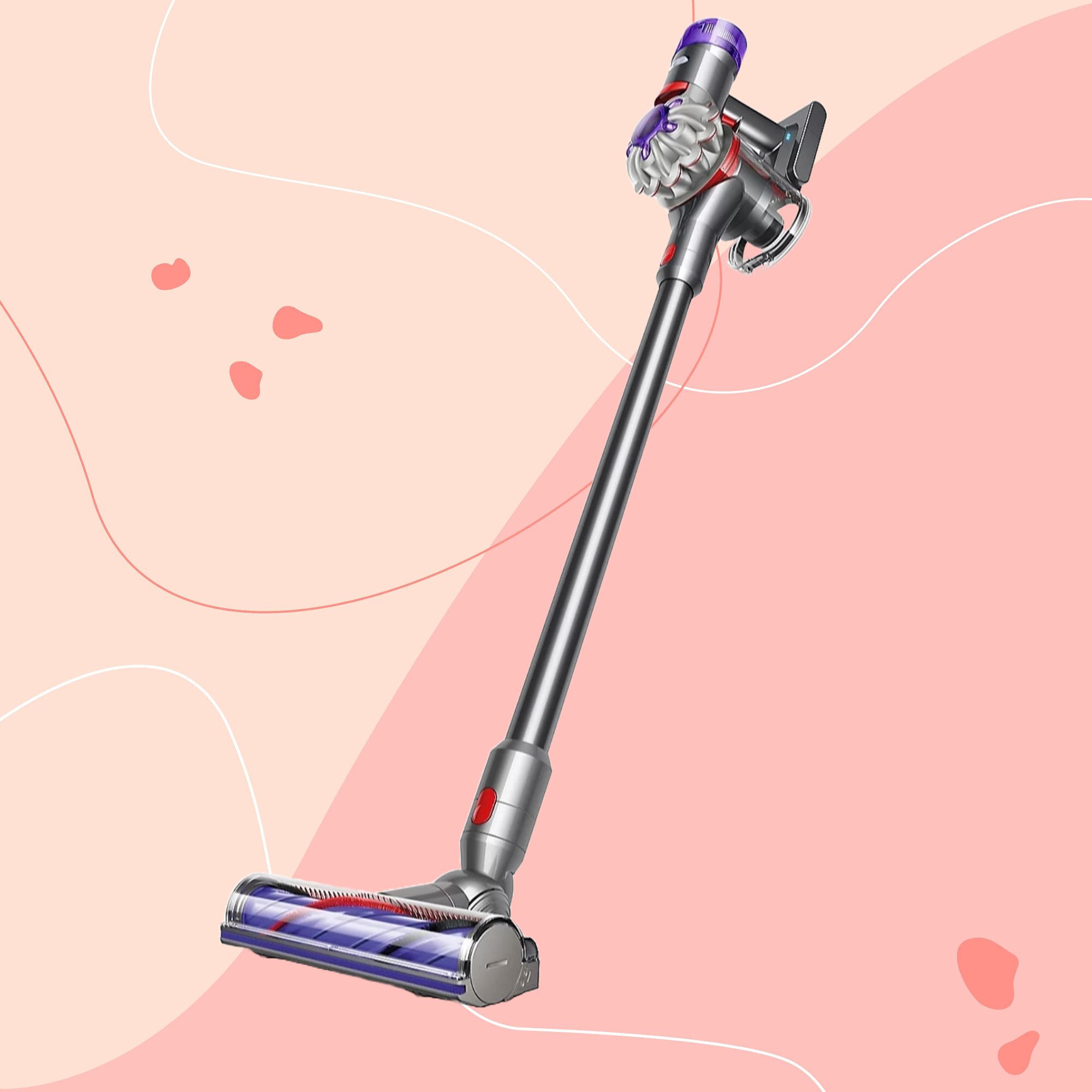 It’s normally impossible to find a Dyson vacuum for under £250 — but QVC has slashed the price of their bestselling models for a limited time
It’s normally impossible to find a Dyson vacuum for under £250 — but QVC has slashed the price of their bestselling models for a limited timeRun don’t walk to pick up the brand’s bestselling model for under £230 before it sells out
By Lauren Bradbury
-
 Catherine Zeta-Jones has revealed the cleaning product she swears by to keep her home fresh - and it’s just £8 on Amazon
Catherine Zeta-Jones has revealed the cleaning product she swears by to keep her home fresh - and it’s just £8 on Amazon'I use it on my counters. I use it on my walls. I use it on my doors. When I smell it, I know my house is clean.'
By Kezia Reynolds
-
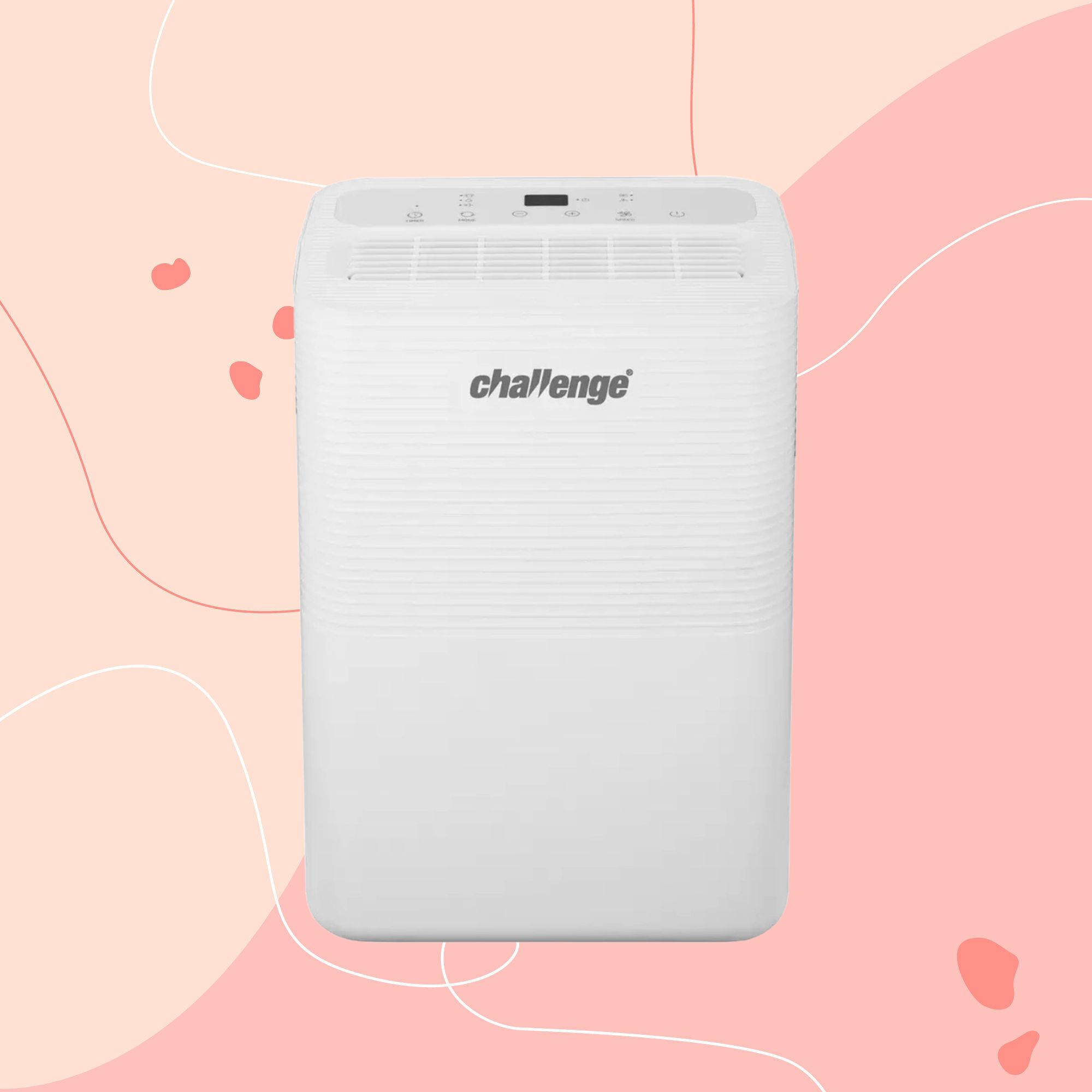 I tested the 12L Challenge dehumidifier in my damp Victorian home over winter — I haven’t spotted any signs of mould for the first time in five years
I tested the 12L Challenge dehumidifier in my damp Victorian home over winter — I haven’t spotted any signs of mould for the first time in five yearsThe Challenge 12L dehumidifier doesn’t have too many bells and whistles, but I can already see the difference it’s made to my damp home
By Lauren Bradbury
-
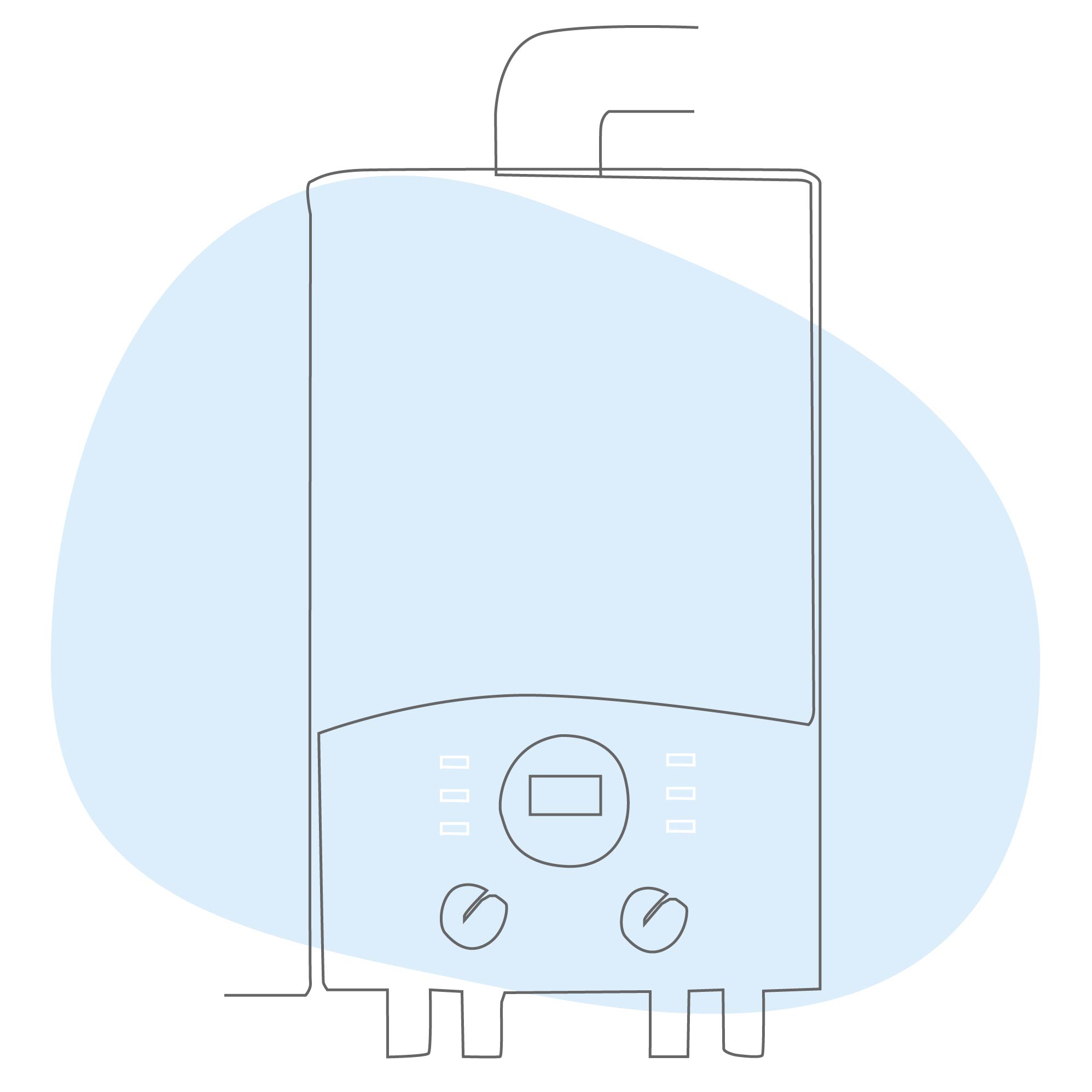 What is boiler flow temperature? Heating experts urge you to check yours now as you could be overpaying on your energy bills
What is boiler flow temperature? Heating experts urge you to check yours now as you could be overpaying on your energy billsTurning this little-known number down just a few degrees can result in some serious savings
By Lauren Bradbury
-
 Stacey Solomon has shared 5 nifty wardrobe storage hacks to make getting ready in the morning easier — and they're genius
Stacey Solomon has shared 5 nifty wardrobe storage hacks to make getting ready in the morning easier — and they're geniusThese five wardrobe storage hacks are a gamechanger
By Katie Sims
-
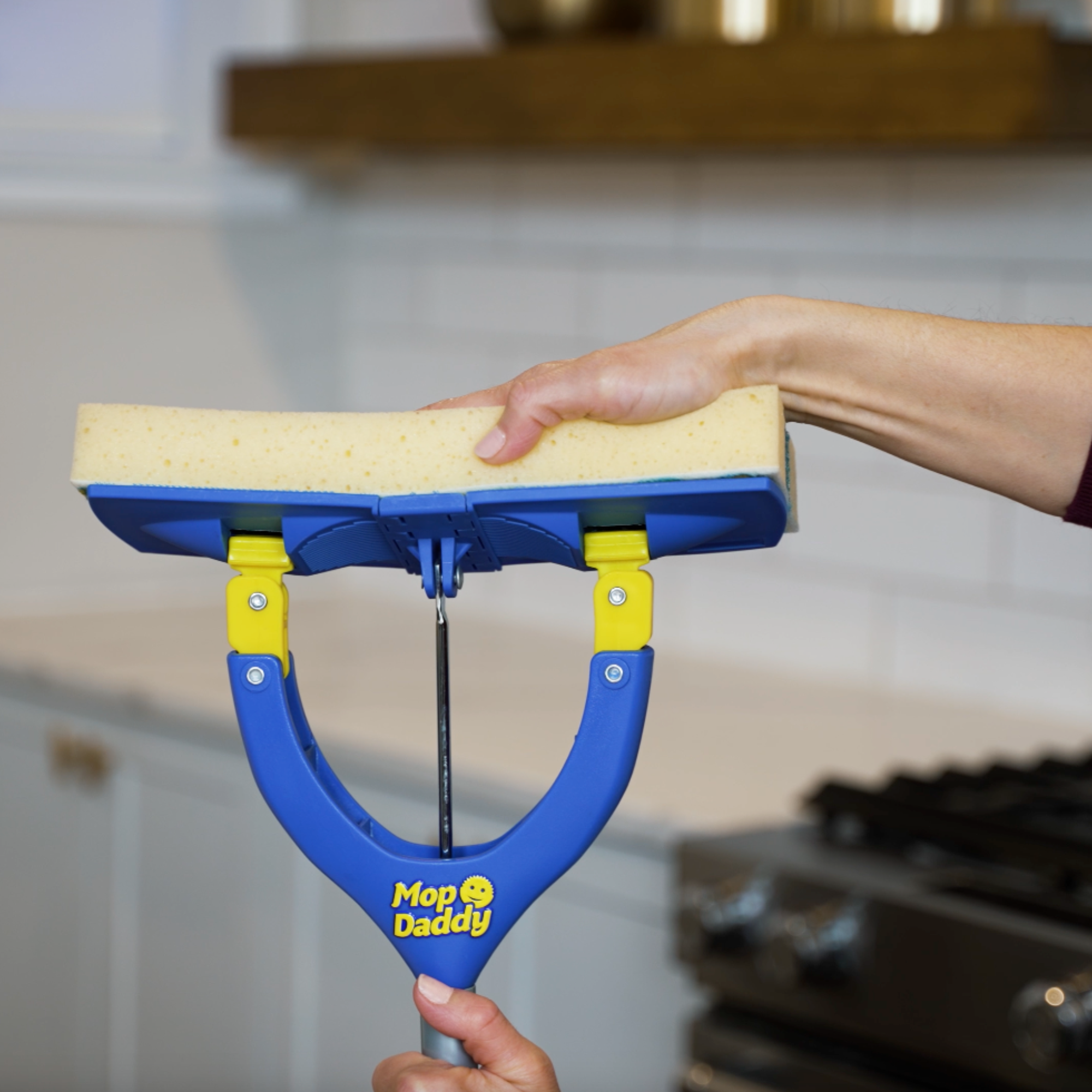 Cult cleaning brand Scrub Daddy has just launched a brand new butterfly mop — could it be the ultimate solution for banishing stubborn marks on your floor?
Cult cleaning brand Scrub Daddy has just launched a brand new butterfly mop — could it be the ultimate solution for banishing stubborn marks on your floor?We're obsessed with all things Scrub Daddy
By Kezia Reynolds
